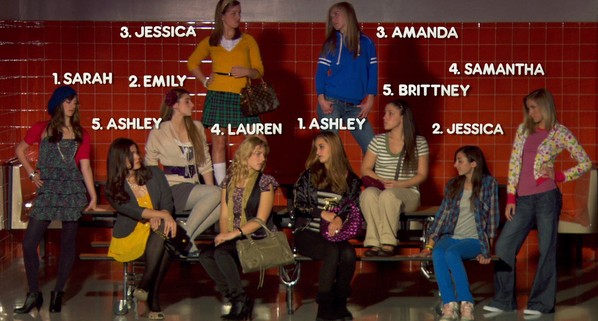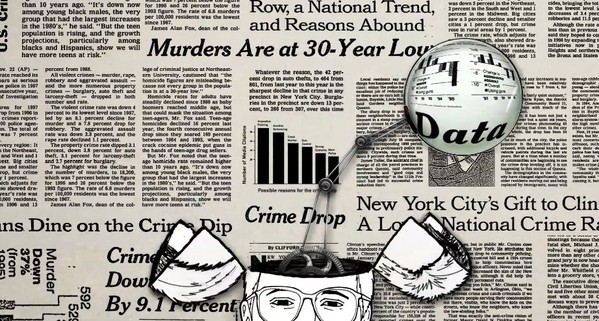Freakonomics
Freakonomics
is a really solid example of how to do a documentary when your subject
is more academic and abstract than your standard
mammals/planets/waterfalls/pyramids fare. Based on the book by the same
name, Freakonomics deals with sociological issues such as
cheating, student performance, and – most controversially – abortion.
Each of these is analysed in novel and surprising ways through an
economic lens (although it is disconcerting to note that the presence
and nature of that lens is not always explicit). It’s all rather
compelling stuff, and very slickly presented.

Each
issue gets its own segment, a mixture of interviews and infographics.
The authors of the book are a constant presence; economist Steven Levitt
and journalist Stephen J. Dubner casually and conversationally talk us
through each of the issues. They’re never too cute, never too
condescending, and they keep the whole thing rocketing along at a nice
pace. This basic format (a highly entertaining informal panel
discussion) is supplemented by animated charts, graphs and other
imagery, all of which are remarkably well produced and firmly lead us to
the desired conclusions.
As for the content, there’s one particular ingredient
which is used heavily and regularly. It’s that feeling of revelation
that accompanies such comments as “I’ve never looked at it that way” or
“Of course, it makes sense now” or “Why didn’t I think of that?” These
feelings are always the best part of any learning experience, and
Freakonomics delivers in spades. Plenty of surprising methods and
explanations are deployed throughout the film. A link between crime
rates and the constitutionalisation of abortion rights in America,
social fortunes as related to birth names, and the detection of
corruption in sumo wrestling – all are explored in a way that just seems
to make sense.

This
instinctive acceptance of such beautifully sense-making stories is
Freakonomics’ greatest strength, and also the aspect of the film
which should put you on guard. Some of the explanations simply seem far
too neat, and if you pay close attention, competing theories are often
quickly brushed aside. A short session of Google-fu quickly reveals that
much of the documentary is subject to serious debate. Sometimes the data
are contested, sometimes a competing theory is argued to be a better
fit, and sometimes the audience is warned that economics might just not
be a one-size-fits-all science that you can apply to any field of life,
no matter how much the Freakonomics crew wish it were so.
Be that as it may, the film itself is technically a
triumph. Does the quality of the content match the quality of the
presentation? I’m not sure, but it’s made me think about a whole lot of
things, and I’m going to chalk that up as a win.